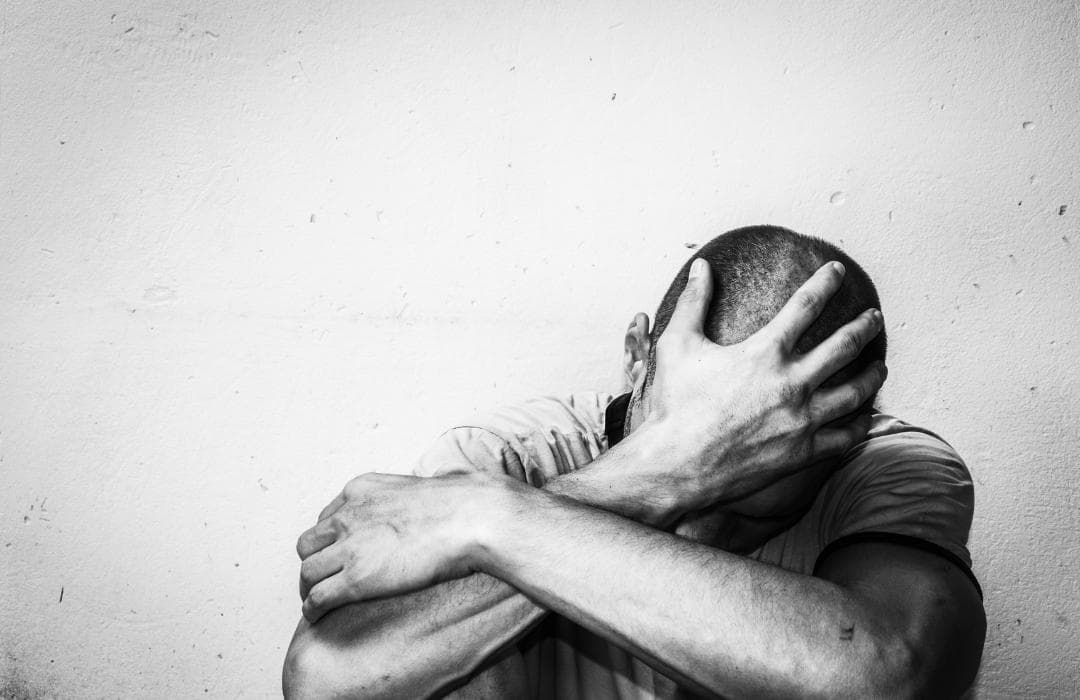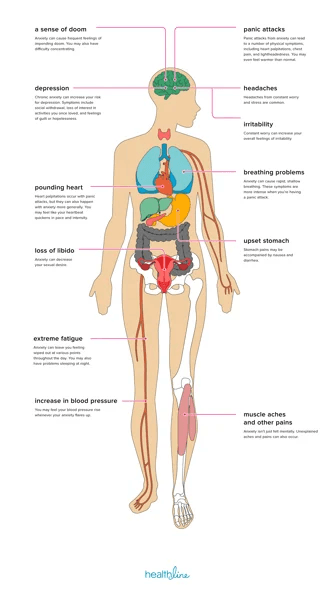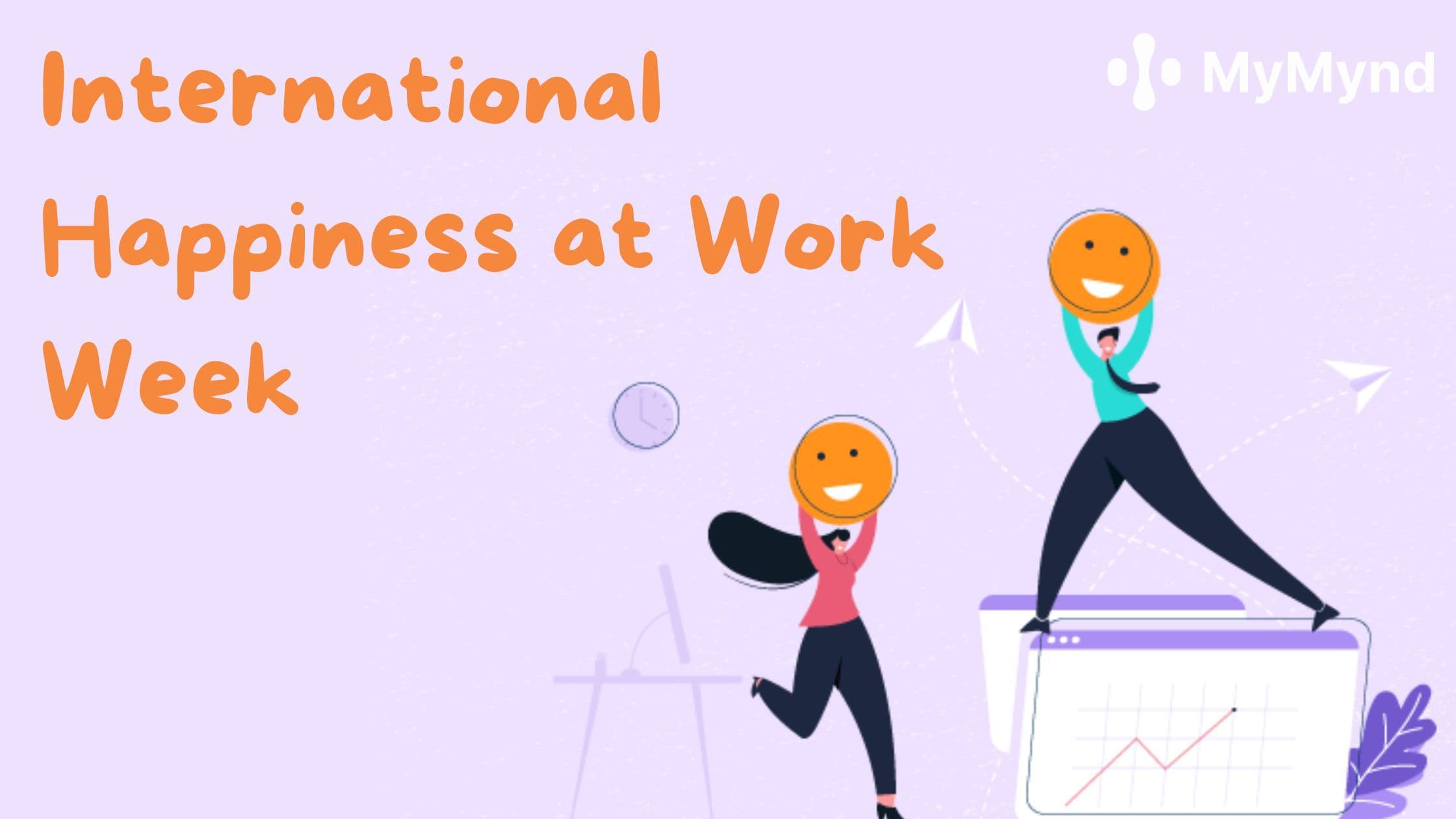...
...
...
...
...

Anxiety is a common mental health condition, and the focus of Mental Health Awareness Week 2023. Find out what it is and what you can do about it.

Hannah Clemens
May 10th, 2023
The numbers are clear.
1 in 4 people in the UK will experience a mental health problem of some kind each year. Yet only around 1 in 3 adults with a common mental health condition are currently getting treatment (talking therapies, medication, or both).
One of the most prevalent mental health conditions is anxiety. In any given week, around 6 in 100 people are diagnosed with generalised anxiety disorder in the UK.
We all experience anxiety from time to time. It’s normal to feel anxious in response to new, stressful, or threatening situations. It’s our body’s way of preparing us to deal with those situations by releasing certain hormones such as adrenaline and cortisol. Put simply, these hormones make us feel more alert and make our hearts beat faster, so we can react quickly.
This is commonly referred to as the ‘fight, flight or freeze’ response, which is something our bodies do automatically, so we can’t control it.
However, when this response becomes disproportionate to the situation in question, or occurs without any apparent event at all, it can be problematic. Prolonged or excessive periods of anxiety can have a negative impact on our lives and our health, both physical and mental.
Anxiety can be experienced through our thoughts, feelings, and physical sensations. When anxiety is a mental health problem it is typically accompanied by:
Heightened physical sensations. Anxiety can be felt as several physical sensations including a tight chest, increased heart rate, tense muscles, nausea, and shortness of breath.
Negative automatic thoughts. Automatic thoughts are the subconscious thoughts we have about ourselves and the world around us. Negative automatic thoughts are the most unpleasant of these and are often irrational and self-defeating in nature.
Problematic coping behaviours. Problematic coping behaviours or “safety behaviours” are actions we carry out in order to protect ourselves from feeling anxious. They can be effective in the short-term but actually serve to maintain our anxiety in the long-term. They include things like avoidance, hyper vigilance, and excessive checking.

Anxiety can be experienced in a lot of different ways and in response to a lot of different events. If these experiences meet certain criteria, they might be diagnosed as a specific anxiety disorder.
Mind provides a good overview of common anxiety disorders, such as:
In 2020/21 anxiety, depression, and stress accounted for 50% of all work-related ill-health cases. Workplace anxiety refers to worries and fears about events and interactions that occur at work. For example, a worry about job performance, financial wellbeing, or social interactions at work.
There are a few practical steps that can be taken to support colleagues that experience anxiety:
Spot the signs & symptoms. No matter whether an employee’s anxiety is work-related or not, there are a few signs we can look out for:
Physical
Psychological
Behavioural
Adopt an open-door policy. Make your employees feel like they can approach you any time with anything that is on their minds. This helps create a friendly, accepting, and welcoming culture.
Allow for flexibility. Make reasonable adjustments where necessary. This could be adjusting hours or allowing for home office work.
Ask them what support they need. Don’t just assume things, give the control back to the employee and explore with them how you can help.
Get trained. Management teams should be educated about mental health and how to respond appropriately.
Discover and manage the causes of stress. Reducing your employee’s workplace stressors will do a great deal in supporting their recovery from anxiety.

Fostering meaningful connections can enrich our lives
Hannah Clemens
Jul 25th, 2023
Living with Social Anxiety: Practical Advice for Everyday Life
Keeva Galway
Aug 5th, 2024

Why is Happiness at Work so important and how can we achieve it?
Nia Griffiths
Sep 23rd, 2024